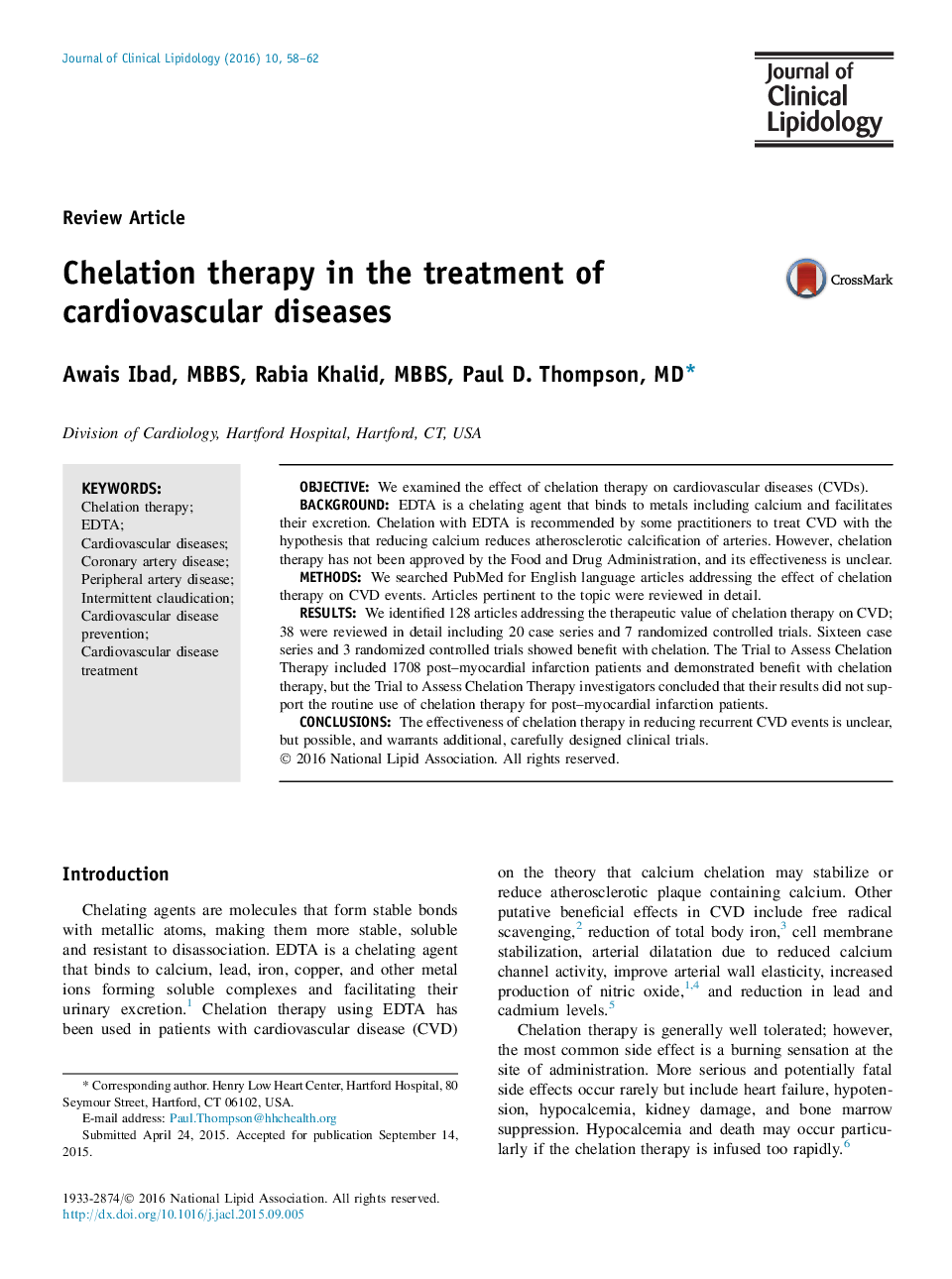| Article ID | Journal | Published Year | Pages | File Type |
|---|---|---|---|---|
| 5985174 | Journal of Clinical Lipidology | 2016 | 5 Pages |
â¢Chelation therapy has not been studied widely for cardiovascular diseases (CVD).â¢Use of Chelation therapy for CVD has increased over the years.â¢Effectiveness of Chelation therapy for CVD is not clear.â¢Previous studies are not convincing enough to approve chelation therapy for CVD.â¢Further randomized controlled trials are needed to assess its effectiveness.
ObjectiveWe examined the effect of chelation therapy on cardiovascular diseases (CVDs).BackgroundEDTA is a chelating agent that binds to metals including calcium and facilitates their excretion. Chelation with EDTA is recommended by some practitioners to treat CVD with the hypothesis that reducing calcium reduces atherosclerotic calcification of arteries. However, chelation therapy has not been approved by the Food and Drug Administration, and its effectiveness is unclear.MethodsWe searched PubMed for English language articles addressing the effect of chelation therapy on CVD events. Articles pertinent to the topic were reviewed in detail.ResultsWe identified 128 articles addressing the therapeutic value of chelation therapy on CVD; 38 were reviewed in detail including 20 case series and 7 randomized controlled trials. Sixteen case series and 3 randomized controlled trials showed benefit with chelation. The Trial to Assess Chelation Therapy included 1708 post-myocardial infarction patients and demonstrated benefit with chelation therapy, but the Trial to Assess Chelation Therapy investigators concluded that their results did not support the routine use of chelation therapy for post-myocardial infarction patients.ConclusionsThe effectiveness of chelation therapy in reducing recurrent CVD events is unclear, but possible, and warrants additional, carefully designed clinical trials.
